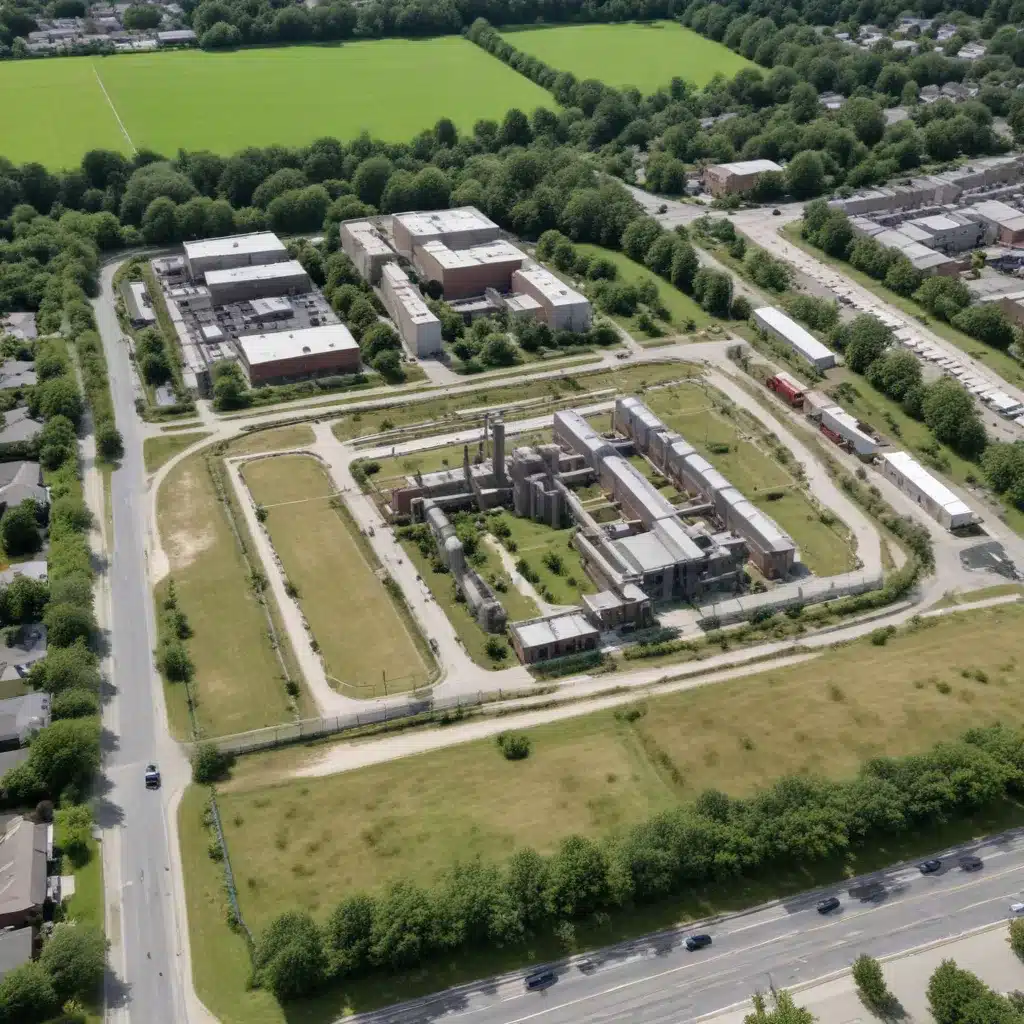
Navigating the Complexities of Air-Cooled Heat Exchangers in Sustainable Energy Projects
As a seasoned expert in air-cooled heat exchangers, I’m well-versed in providing practical tips and in-depth insights on their design, engineering, maintenance, performance optimization, and applications across various industries. In this article, I’ll delve into the Exeter City Council’s proposal to sell part of the Grace Road Fields to enable the construction of a district heating network plant, shedding light on the implications and considerations for air-cooled heat exchanger technology.
Understanding the Proposed District Heating Network
Exeter City Council has approved a decision to sell a portion of the Grace Road Fields, a fifteen-acre ex-playing field situated between the Exeter Ship Canal and the railway line, to Exeter Energy Limited, a Leeds-based company. This move is part of a plan to construct a district heating network plant that will power an underground heating network for the city.
The proposed heating plant will leverage a combination of heat sources, including:
- River Exe Water Extraction: Heat will be extracted from water pumped from the River Exe, using an on-site air source heat pump.
- Data Center Heat Exchanger: Excess heat from a proposed data center will be utilized.
- Marsh Barton Incinerator: The nearby Marsh Barton waste incinerator, Exeter’s biggest single source of carbon emissions, may also serve as a heat source.
- Gas Boilers: Back-up gas boilers will be installed to ensure reliable heat supply.
Exeter Energy Limited estimates that the new district heating network will save “over 13,000 tonnes of carbon emissions a year,” a significant contribution to the city’s sustainability goals.
Addressing Air-Cooled Heat Exchanger Considerations
As an expert in air-cooled heat exchangers, I understand the critical role these devices will play in the success of the proposed district heating network. Here are some key considerations and insights:
Efficient Heat Extraction and Transfer
The air source heat pump and data center heat exchanger will rely on high-performance air-cooled heat exchangers to effectively extract and transfer the available thermal energy. Proper sizing, design, and material selection for these heat exchangers will be crucial to maximize efficiency and minimize energy losses.
Integrating with Incinerator Heat
Utilizing the waste heat from the Marsh Barton incinerator presents an interesting challenge. Air-cooled heat exchangers may be employed to capture and channel this excess heat into the district heating network. Careful engineering will be required to optimize the heat recovery process and ensure seamless integration with the incinerator’s operations.
Maintenance and Reliability
As the district heating network is intended to serve a large number of homes and businesses, the reliability of the air-cooled heat exchangers will be paramount. Implementing a robust maintenance program, incorporating regular inspections, cleaning, and proactive component replacement, will be essential to ensure the system’s long-term performance and minimize unexpected downtime.
Adaptability and Scalability
The district heating network’s expansion plans will need to be considered when selecting and configuring the air-cooled heat exchangers. Modular or scalable designs can provide the flexibility to accommodate future growth and changing heat demand, allowing the system to adapt to the city’s evolving energy needs.
Balancing Sustainability and Public Space Preservation
The proposed sale of part of the Grace Road Fields has raised concerns among local residents and the Exeter Civic Society. They argue that the development goes against the city’s own planning policies, which aim to preserve and enhance the Riverside Valley Park, of which the Grace Road Fields are a part.
As an expert in air-cooled heat exchangers, I understand the importance of finding the right balance between sustainability initiatives and preserving public green spaces. The Exeter Civic Society’s concerns about the long-term need for the valley park to serve the growing population and future development sites are valid and deserve careful consideration.
One potential solution could be to explore alternative locations for the district heating plant that do not encroach on the designated public greenspace. This may require more extensive site assessments and feasibility studies, but it could ultimately lead to a more sustainable and community-friendly outcome.
Additionally, the council could consider integrating the district heating plant with the planned redevelopment of the Water Lane site, which is already earmarked for “strategic mixed use” under the new Exeter Local Plan. By carefully integrating the energy infrastructure with the broader urban planning goals, the council may be able to strike a balance between the city’s sustainability objectives and the preservation of its valued public spaces.
Conclusion: Navigating the Complexities of Sustainable Energy Projects
The Exeter City Council’s proposal to sell part of the Grace Road Fields for a district heating network plant highlights the intricate challenges faced when implementing sustainable energy solutions in urban environments. As an expert in air-cooled heat exchangers, I’ve highlighted the key considerations around efficient heat extraction and transfer, integration with waste heat sources, maintenance, and adaptability – all of which will be crucial to the success of the proposed project.
However, the project’s impact on the Riverside Valley Park and the concerns raised by the local community must also be carefully addressed. By exploring alternative locations, integrating the energy infrastructure with broader urban planning goals, and maintaining transparent communication with the public, the council can work towards a solution that balances sustainability, community needs, and the preservation of valuable public green spaces.
As the air-cooled heat exchanger technology continues to evolve, and sustainable energy projects become more prevalent, it is essential for local authorities, urban planners, and industry experts to collaborate closely to navigate these complex challenges and deliver innovative, community-friendly solutions. The Exeter City Council’s decision on the Grace Road Fields project will set an important precedent for how such initiatives can be successfully executed in the future.

